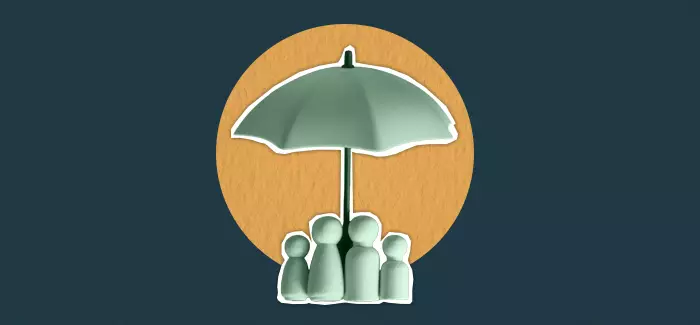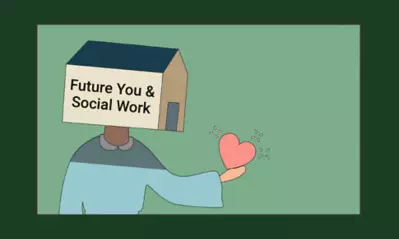Articles > Social Work┬Ā>┬ĀCareers in child protective services
Careers in child protective services

Written by Dillon Price

Reviewed by Christina Neider, EdD, Dean of the College of Social and Behavioral Sciences

If youŌĆÖre looking for a career in which you can help families, you may consider a role within the field of child protective services, also known as child and family services and child welfare. CPS is an umbrella term for a variety of roles, each of which has its unique focus in ensuring child safety and well-being. But what exactly do CPS workers do, and how do you prepare for a career in this field? LetŌĆÖs take a closer look at these and other details.
What is child protective services?
Child protective services is a field that operates at the state, local and tribal levels. Its purpose is to protect children from abuse and neglect while helping families create safe, stable homes.
The foundation of CPS work lies in three national goals as outlined in the : child safety, permanency and well-being. State agencies that engage in this work receive and investigate reports of child maltreatment, assess risks and develop interventions to protect children while strengthening families.
When itŌĆÖs unsafe for a child to remain at home, CPS agencies arrange care with relatives or foster families while working toward solutions. They may eventually reunite children with their families when itŌĆÖs safe to do so. Otherwise, they may pursue adoption or other guardianship options.╠²
The importance of child safety and welfare
The sole mission of the child welfare system is to protect children and ensure their well-being. This involves identifying safety concerns, addressing risks and providing the necessary support to keep families together whenever itŌĆÖs safe to do so.
When a family enters the system, CPS agencies assess the familyŌĆÖs situation for risk factors, family dynamics and the impact of trauma. This approach goes beyond addressing immediate issues; it helps establish trust and collaboration to find meaningful solutions.
The child welfare system also helps families address socioeconomic challenges and creates pathways to a safer, more stable future. Their work is grounded in empowering families while acknowledging and respecting the difficulties they face.
Collaboration with other agencies and professionals
CPS agencies work jointly with law enforcement during investigations of child abuse or neglect. They also coordinate with courts to achieve legal protection for children when necessary.
They work with mental health professionals, educators, medical personnel and support services to develop assessments, safety plans and intervention strategies.
Additionally, CPS agencies can collaborate with domestic violence specialists, substance use disorder counselors and other service providers to make comprehensive and informed decisions about a child's safety and family needs.
What is it like to work for child protective services?
If youŌĆÖre thinking about working for a CPS agency, itŌĆÖs important to consider the unique challenges and rewards of the field. HereŌĆÖs what you should know about the nature of the organization.
Addressing the emotional and psychological challenges of the job
CPS workers deal with emotionally charged situations, which can lead to stress, compassion fatigue and burnout if not carefully managed. Secondary traumatic stress is another challenge CPS workers face, which occurs when theyŌĆÖre exposed to trauma through the firsthand accounts of others.
To address these challenges, CPS agencies can implement manageable workloads, flexible schedules and opportunities for professional growth. These efforts help workers manage the demands of their roles and reduce burnout and turnover.
The impact of child protective services on families and communities
CPS workers may seek to address biases within the system to help families stay intact and create a stronger foundation for their future. They also have the chance to help break down systemic barriers and help each family as much as they can.
Families living in poverty are disproportionately reported to these agencies compared to those from higher socioeconomic backgrounds. For example, a revealed that children with public health insurance are reported more often than those with private insurance.
To avoid the unnecessary stress and separation linked to unfair reporting, CPS agencies offer tailored support to help families through tough times. For parents struggling to make ends meet, housing assistance, food support and child care can ease the burden and give them space to focus on their childrenŌĆÖs well-being.╠²
Rewards and fulfillment in making a difference in children's lives
If youŌĆÖre committed to helping others and giving back to the community, a career with a CPS agency might sound attractive. Dedicated CPS workers can find deep personal fulfillment in knowing their efforts genuinely change lives and protect those who need it.
How to become a child protective services worker
To qualify for CPS careers, you need a strong educational background, relevant experience and specific skills. Entry-level CPS jobs may require a Bachelor of Science in Social Work, a Bachelor of Science in Correctional Program Support Services or a similar degree.
CPS agencies also prefer candidates with prior experience in social work, internships or volunteer work focused on children and families.
Skills required for CPS workers include:
- Excellent communication and listening skills
- The ability to solve complex problems
- Organizational and task management skills
- Compassion, empathy and patience
- Critical thinking and analysis skills
- Knowledge of child welfare laws
Positions that require a social work degree may, depending on which state youŌĆÖre in, require licensure as a social worker. This involves supervised experience, passing an exam and other requirements such as a background check or fingerprinting.
What are the different child protective services jobs?
Child welfare agencies have a variety of names such as child protection services (CPS), departments of child and family services (DCFS). Here are some of the key careers within CPS agencies that make up this important work.╠²
Child protection specialist
A child protection specialist investigates cases of child abuse and neglect, collaborates with agencies to ensure childrenŌĆÖs safety and provides support to families to prevent future harm.
They also advocate for at-risk children and make recommendations to courts and agencies about appropriate interventions or placements.╠²
Child welfare worker
A child welfare worker ensures the safety, well-being and healthy development of children facing abuse, neglect or family crises. Their work includes assessing family dynamics, connecting families with resources and advocating for childrenŌĆÖs best interests within the legal and social systems.
Family support specialist
A family support specialist helps families access resources and improve their overall well-being. They may provide counseling, case management, resource referrals and advocacy while empowering families to achieve self-sufficiency.
Family services worker
A family services worker supports the well-being of children and families by addressing abuse, neglect and economic hardship. They assess family needs, create intervention plans and connect families with resources to promote safety and stability.
Foster care worker
A foster care worker is an advocate who helps children in the foster care system find stability and support. They work closely with biological and foster families to build connections and ensure a child's well-being.╠²
How to prepare for a career in child protective services
Ready to start your path to a child protective services career? UOPXŌĆÖs programs include:
- Bachelor of Science in Social Work: This online degree program offers foundational courses to prepare you with skills such as ethical decision-making, culturally competent communication, advocacy strategy, social justice and more.
To learn more about online college programs, reach out to UOPX to request more information.╠²
Read more articles like this:┬Ā ┬Ā ┬Ā ┬Ā ┬Ā ┬Ā ┬Ā ┬Ā ┬Ā ┬Ā ┬Ā ┬Ā ┬Ā ┬Ā ┬Ā ┬Ā ┬Ā ┬Ā ┬Ā ┬Ā ┬Ā ┬Ā ┬Ā ┬Ā ┬Ā ┬Ā ┬Ā ┬Ā ┬Ā ┬Ā ┬Ā ┬Ā ┬Ā ┬Ā ┬Ā ┬Ā ┬Ā ┬Ā ┬Ā ┬Ā ┬Ā ┬Ā ┬Ā ┬Ā ┬Ā ┬Ā ┬Ā ┬Ā ┬Ā ┬Ā ┬Ā ┬Ā ┬Ā ┬Ā ┬Ā ┬Ā ┬Ā ┬Ā ┬Ā ┬Ā ┬Ā ┬Ā ┬Ā ┬Ā ┬Ā┬Ā

ABOUT THE AUTHOR
Dillon Price is a detail-oriented writer with a background in legal and career-focused content. He has written and edited blogs for dozens of law firms, as well as Law.com. Additionally, he wrote numerous career advice articles for Monster.com during the companyŌĆÖs recent rebranding. Dillon lives in Western Massachusetts and stays in Portugal each summer with his family.╠²

ABOUT THE REVIEWER
Christina Neider is the dean of the ░«╬█┤½├Į College of Social and Behavioral Sciences.╠²NeiderŌĆÖs career spans more than 30 years in academia, healthcare and the U.S. Air Force. She has held several academic leadership roles at ░«╬█┤½├Į, and she is the Vice President of membership for the Arizona Chapter of the Healthcare Information and Management Systems Society.
This article has been vetted by ░«╬█┤½├Į's editorial advisory committee.╠²
Read more about our editorial process.


